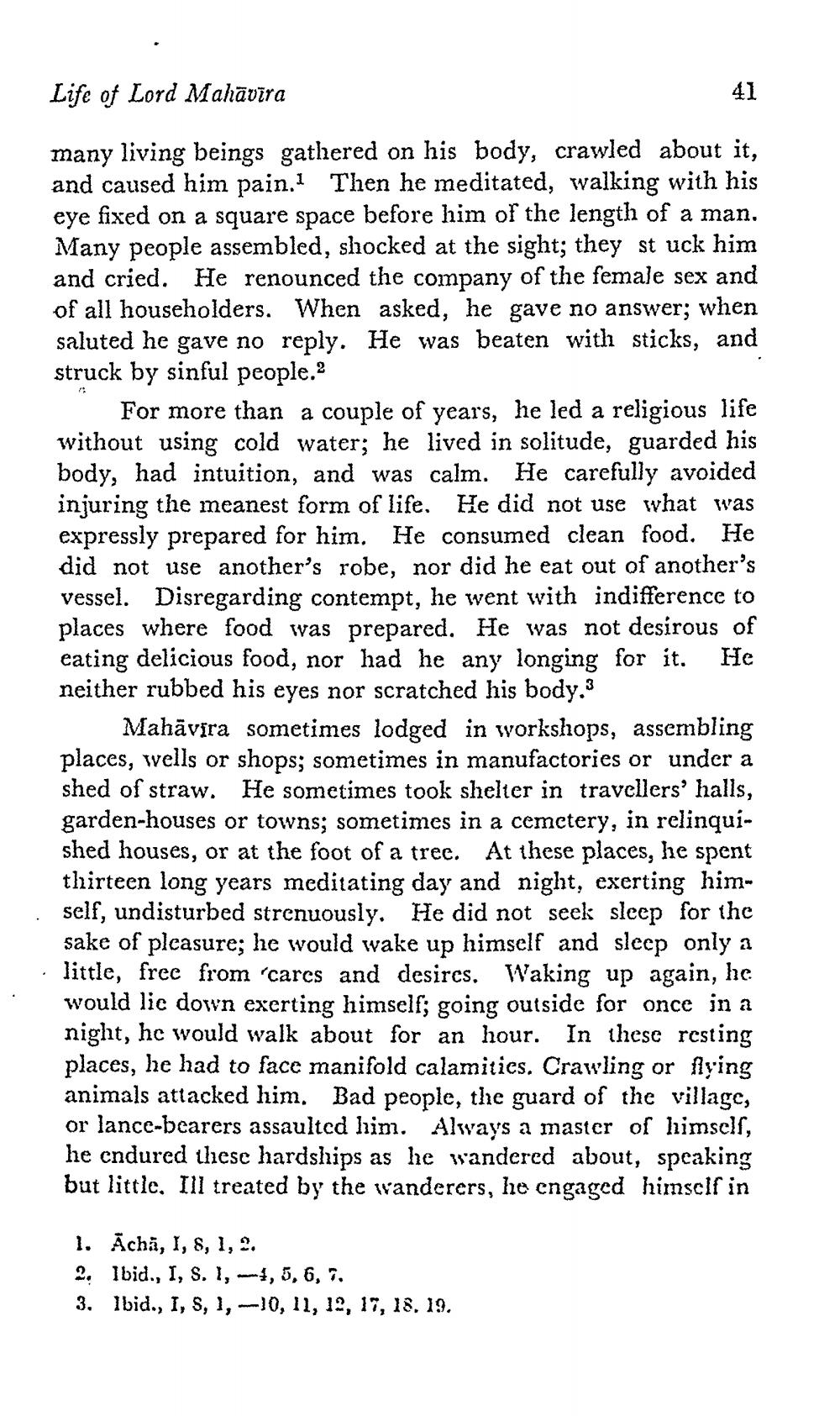________________
Life of Lord Mahāvīra
many living beings gathered on his body, crawled about it, and caused him pain. Then he meditated, walking with his eye fixed on a square space before him of the length of a man. Many people assembled, shocked at the sight; they st uck him and cried. He renounced the company of the female sex and of all householders. When asked, he gave no answer; when saluted he gave no reply. He was beaten with sticks, and struck by sinful people.2
For more than a couple of years, he led a religious life without using cold water; he lived in solitude, guarded his body, had intuition, and was calm. He carefully avoided injuring the meanest form of life. He did not use what was expressly prepared for him. He consumed clean food. He did not use another's robe, nor did he eat out of another's vessel. Disregarding contempt, he went with indifference to places where food was prepared. He was not desirous of eating delicious food, nor had he any longing for it. He neither rubbed his eyes nor scratched his body.3
41
Mahavira sometimes lodged in workshops, assembling places, wells or shops; sometimes in manufactories or under a shed of straw. He sometimes took shelter in travellers' halls, garden-houses or towns; sometimes in a cemetery, in relinquished houses, or at the foot of a tree. At these places, he spent thirteen long years meditating day and night, exerting himself, undisturbed strenuously. He did not seek sleep for the sake of pleasure; he would wake up himself and sleep only a little, free from 'cares and desires. Waking up again, he would lie down exerting himself; going outside for once in a night, he would walk about for an hour. In these resting places, he had to face manifold calamities. Crawling or flying animals attacked him. Bad people, the guard of the village, or lance-bearers assaulted him. Always a master of himself, he endured these hardships as he wandered about, speaking but little. Ill treated by the wanderers, he engaged himself in
1. Acha, I, 8, 1, 2.
2. Ibid., I, S. 1,
3. Ibid., I, S, 1,
4, 5, 6, 7.
10, 11, 12, 17, 18. 19.




